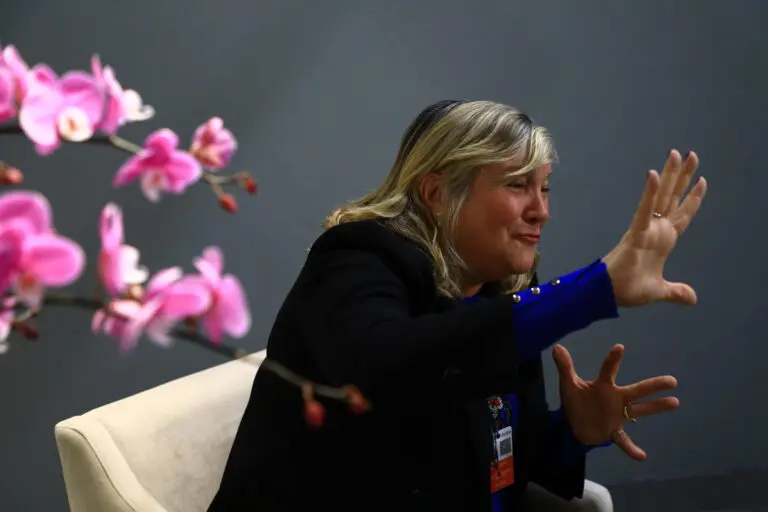
María-Noel Vaeza indicated that she is not overly concerned about Argentina’s opposition during the summit since the majority supported the discussed proposals. She emphasized that women’s rights were central to all discussions at the event. Nov 15, 2024 Photo: EFE
Quito, November 17 (RHC)-- At the Ibero-American Summit in Ecuador, all countries except Argentina supported a document advocating for gender equity, actions against climate change, and the promotion of Sustainable Development Goals (SDGs), in addition to condemning the U.S. trade blockade on Cuba.
The regional director of UN Women for Latin America and the Caribbean, María-Noel Vaeza, stated that Argentinian President Javier Milei “must agree with the eradication of hunger and poverty in the world,” which are fundamental principles of the 2030 Agenda.
The summit concluded without an official declaration due to a lack of consensus among the nineteen participating countries out of a total of twenty-two in the Spanish and Portuguese-speaking group.
However, Milei opposed including these issues in the declaration of the XXIX Ibero-American Summit held in Cuenca, Ecuador.
All countries except Argentina supported a document advocating for gender equity, actions against climate change, and the promotion of Sustainable Development Goals (SDGs), in addition to condemning the U.S. trade blockade on Cuba.
The Argentinian ambassador at the forum, Eduardo Acevedo, expressed the government’s refusal to sign these articles and proposed that the nineteen countries sign a document reflecting only common points, which was rejected by Cuba and other nations.
Vaeza indicated that she is not overly concerned about Argentina’s opposition during the summit since the majority supported the discussed proposals. She emphasized that women’s rights were central to all discussions at the event.
“It is normal for new governments to seek to leave their mark; that is legitimate and sovereign. What is crucial is to avoid setbacks, such as asserting that women cannot vote or must return to the kitchen,” she stressed. Additionally, she highlighted the need for politics to better understand women’s needs and contributions to advance their rights.
The director also pointed out that Argentina has been a pioneer in many aspects related to women’s rights and underscored the strength of feminist movements in the region, asserting her belief that the “structural changes” achieved cannot be reversed.
[ SOURCE: teleSUR ]

